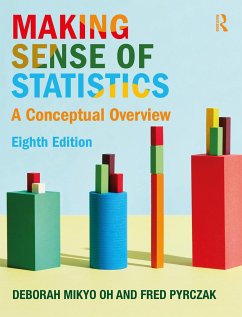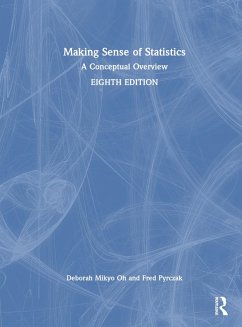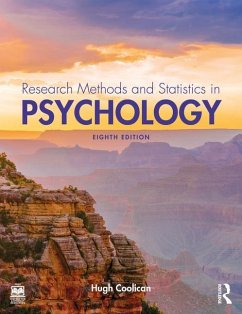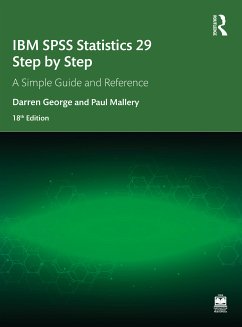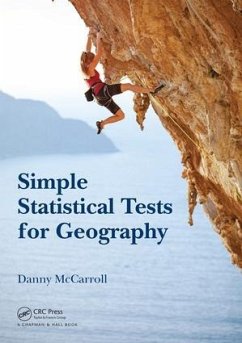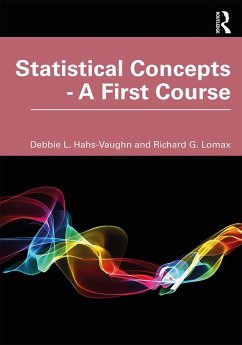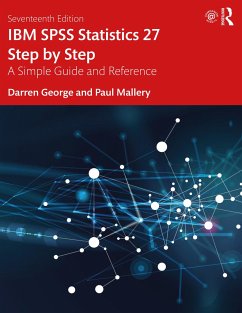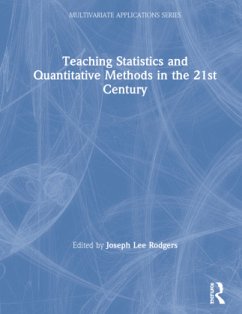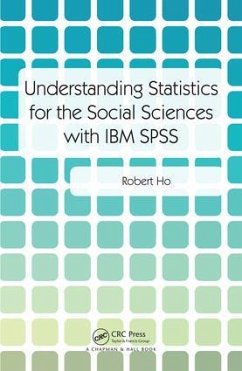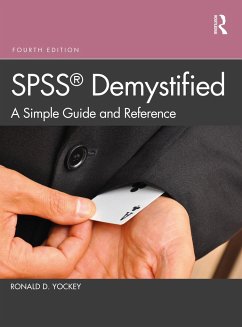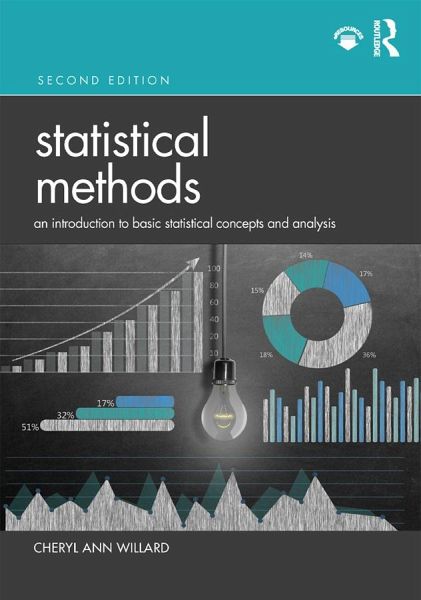
Statistical Methods
An Introduction to Basic Statistical Concepts and Analysis
Versandkostenfrei!
Versandfertig in 6-10 Tagen
62,99 €
inkl. MwSt.
Weitere Ausgaben:

PAYBACK Punkte
31 °P sammeln!
Statistical Methods: An Introduction to Basic Statistical Concepts and Analysis, Second Edition is a textbook designed for students with no prior training in statistics. It provides a solid background of the core statistical concepts taught in most introductory statistics textbooks. Mathematical proofs are deemphasized in favor of careful explanations of statistical constructs.The text begins with coverage of descriptive statistics such as measures of central tendency and variability, then moves on to inferential statistics. Transitional chapters on z-scores, probability, and sampling distribu...
Statistical Methods: An Introduction to Basic Statistical Concepts and Analysis, Second Edition is a textbook designed for students with no prior training in statistics. It provides a solid background of the core statistical concepts taught in most introductory statistics textbooks. Mathematical proofs are deemphasized in favor of careful explanations of statistical constructs.
The text begins with coverage of descriptive statistics such as measures of central tendency and variability, then moves on to inferential statistics. Transitional chapters on z-scores, probability, and sampling distributions pave the way to understanding the logic of hypothesis testing and the inferential tests that follow. Hypothesis testing is taught through a four-step process. These same four steps are used throughout the text for the other statistical tests presented including t tests, one- and two-way ANOVAs, chi-square, and correlation. A chapter on nonparametric tests is also provided as an alternative when the requirements cannot be met for parametric tests.
Because the same logical framework and sequential steps are used throughout the text, a consistency is provided that allows students to gradually master the concepts. Their learning is enhanced further with the inclusion of "thought questions" and practice problems integrated throughout the chapters.
New to the second edition:
Chapters on factorial analysis of variance and non-parametric techniques for all dataAdditional and updated chapter exercises for students to test and demonstrate their learningFull instructor resources: test bank questions, Powerpoint slides, and an Instructor Manual
The text begins with coverage of descriptive statistics such as measures of central tendency and variability, then moves on to inferential statistics. Transitional chapters on z-scores, probability, and sampling distributions pave the way to understanding the logic of hypothesis testing and the inferential tests that follow. Hypothesis testing is taught through a four-step process. These same four steps are used throughout the text for the other statistical tests presented including t tests, one- and two-way ANOVAs, chi-square, and correlation. A chapter on nonparametric tests is also provided as an alternative when the requirements cannot be met for parametric tests.
Because the same logical framework and sequential steps are used throughout the text, a consistency is provided that allows students to gradually master the concepts. Their learning is enhanced further with the inclusion of "thought questions" and practice problems integrated throughout the chapters.
New to the second edition:
Chapters on factorial analysis of variance and non-parametric techniques for all dataAdditional and updated chapter exercises for students to test and demonstrate their learningFull instructor resources: test bank questions, Powerpoint slides, and an Instructor Manual





